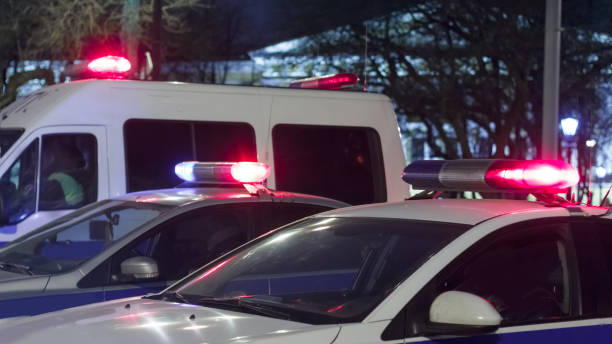Jermela Kittler, 19, Charged with Aiding Fugitive in Ambush Killing of Milwaukee Police Officer Kendall Corder: Prosecutors Say She Sheltered Accused Cop-Killer Tremaine Jones After Execution-Style Shooting
The fatal ambush that claimed the life of Milwaukee Police Officer Kendall Corder has taken a disturbing new turn with the arrest and charging of 19-year-old Jermela Kittler. Authorities allege that Kittler knowingly assisted the man accused of gunning down Officer Corder—22-year-old Tremaine Jones—by harboring him after the deadly shooting. As the investigation into the high-profile homicide deepens, prosecutors say Kittler provided critical shelter to the suspect in the immediate aftermath of the killing, a decision that could now cost her years behind bars and has ignited new public outrage over those who obstruct justice in cases involving fallen law enforcement.
Officer Kendall Corder was fatally shot while responding to a call, an act police have described as an ambush. The killing has sent shockwaves through the Milwaukee community, not only because of the loss of a uniformed officer in the line of duty, but because of the nature of the attack—calculated, unprovoked, and lethal. According to police, Corder never had a chance to draw his weapon. The fatal encounter with Tremaine Jones was sudden and brutal. And as the department and Officer Corder’s family began to reckon with that devastating loss, the investigation quickly shifted to tracking down the shooter.
It was in those crucial hours following the murder, investigators say, that Jermela Kittler played her part—not in justice, but in concealment. Rather than coming forward with information or contacting authorities, she allegedly offered Jones sanctuary in her own home, actively assisting him in avoiding arrest. This alleged decision, prosecutors argue, not only delayed the course of justice but could have endangered others and obstructed a homicide investigation that had already galvanized an entire police department and city.
Kittler, just 19 years old, now faces serious charges for her actions. Authorities have not yet disclosed the full extent of her involvement, including whether she aided in any escape planning, provided false information to police, or acted under duress. What is clear, however, is that her charges stem from knowingly harboring a fugitive—one accused of murdering a sworn officer in cold blood.
The suspect, Tremaine Jones, 22, is facing homicide charges and remains in custody. Details about the shooting suggest that it was not merely a spontaneous outburst, but a premeditated ambush. Officer Corder had responded to a call—a standard part of his daily duties—and in a moment meant to represent service, met with death instead. As with all law enforcement killings, the case has been treated with the highest level of investigative urgency, and the alleged assistance Kittler gave Jones now appears to be a critical chapter in the timeline of the investigation.
The broader implications of Kittler’s involvement are profound. In cases where law enforcement officers are killed in the line of duty, any perceived protection of the suspect is viewed with particular severity by both the justice system and the public. Police unions and prosecutors often argue that aiding a cop-killer is a societal betrayal, a rejection of the most basic obligation to protect those who protect others.
At just 19, Kittler’s future now hangs in the balance. The charges against her carry the potential for significant prison time, depending on how prosecutors choose to proceed. While she has not been charged with participating in the murder itself, her alleged actions—sheltering a homicide suspect and aiding in his evasion of capture—fall under serious statutes concerning obstruction of justice, harboring a fugitive, and possibly accessory after the fact.
For Officer Kendall Corder’s family, the latest developments serve as a painful reminder of the hours after his death—hours in which, had justice been immediately served, perhaps a sliver of closure could have begun. Instead, those hours were extended, investigators redirected, and the suspect temporarily shielded.
Police and prosecutors are urging anyone with further information about the case to come forward. As legal proceedings against both Jones and Kittler move forward, attention will shift to the courtroom, where the facts of her involvement will be laid bare under scrutiny. Did she act knowingly, understanding the gravity of the charges against Jones? Was she threatened, coerced, or manipulated into helping? Or did she make a willful decision to assist in harboring a man wanted for killing a police officer?
These are the questions now facing not only the investigators, but the public, and most critically, a judge and jury. As the legal process unfolds, the consequences of Kittler’s alleged actions will reverberate far beyond her own future. They will speak to how society handles those who choose to protect killers—even passively—and how communities respond to the murder of those sworn to protect them.

Leave a Reply